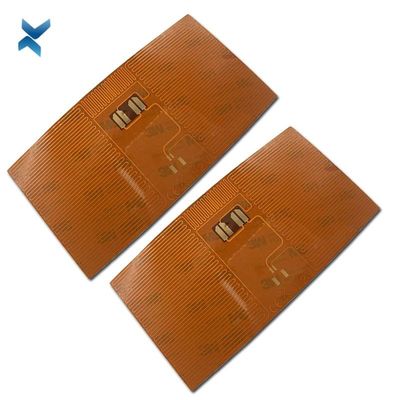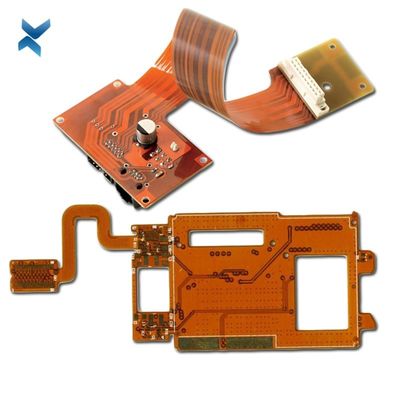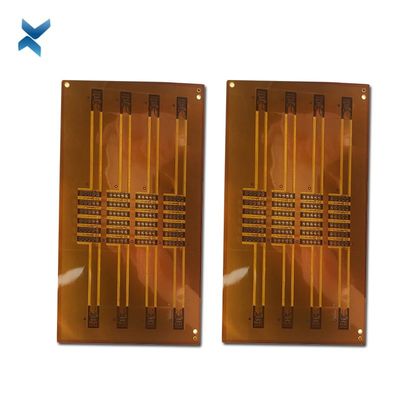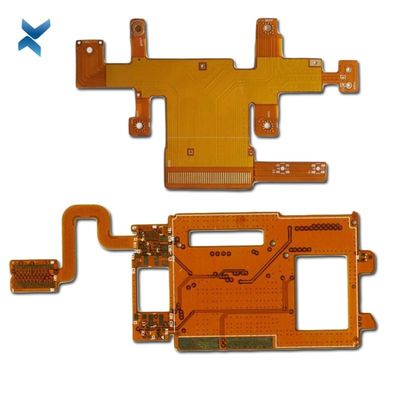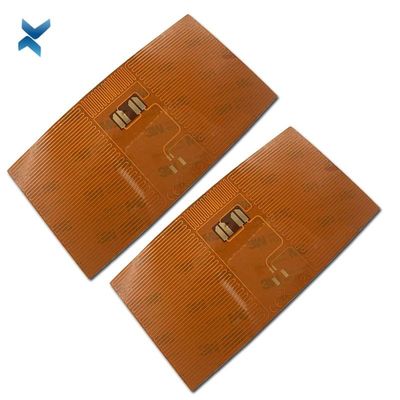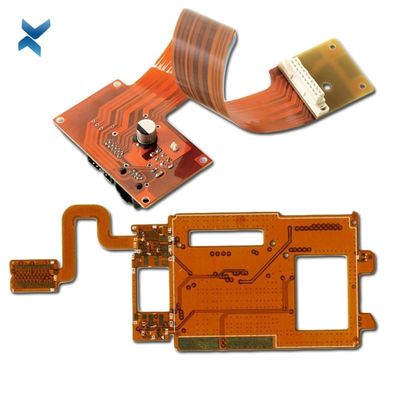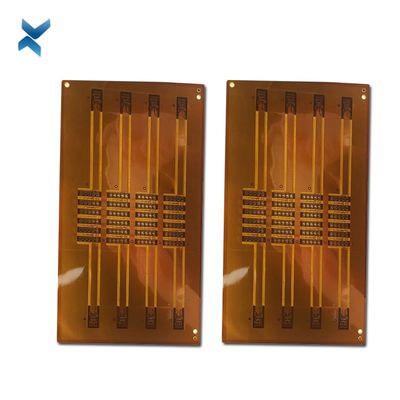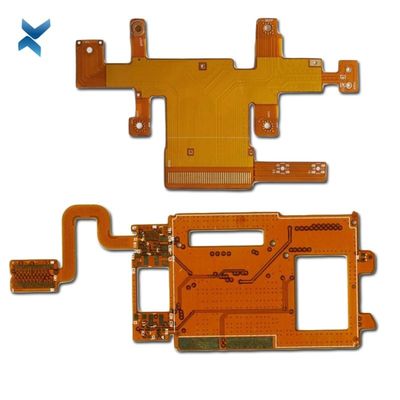Professional 4mil Flexible PCB Board For Electronic RoHS Certificate
| Place of Origin | Shenzhen |
|---|---|
| Brand Name | YScircuit |
| Certification | ISO9001,UL,REACH, RoHS |
| Model Number | YS-0103 |
| Minimum Order Quantity | 1 piece |
| Price | 0.04-8$/piece |
| Packaging Details | Foam cotton + carton + strap |
| Delivery Time | 2-8 days |
| Payment Terms | T/T,PayPal, Alibaba pay |
| Supply Ability | 251,000 square meter/year |

Contact me for free samples and coupons.
Whatsapp:0086 18588475571
Wechat: 0086 18588475571
Skype: sales10@aixton.com
If you have any concern, we provide 24-hour online help.
x| Material | FPC | Size | According To Customer Request |
|---|---|---|---|
| Process | Immersion Gold | Surface Finishing | HASL/HASL-LF/ENIG |
| Min. Line Spacing | 4mil | Board Thickness | 1.6mm |
| High Light | 4mil Flexible PCB Board,RoHS Flexible PCB Board |
||
China custom professional FPC flex pcb RoHS flex circuit board flexible pcb
What Are Flexible Circuit Boards ?
Flexible PCB Definition, For a new product to be better applied, we need to understand exactly what it means and everything about it.
Flexible PCB, also known as flexible electronics, flexible circuit board, Flex PCB, Flexi board, flex circuits.
YS Circuit
Flexible Circuit Boards, as the name suggests, are special types of circuits that can bend and adjust to the shape of the device and product in which they are installed.
They are made of a flexible substrate and have the capability to adapt according to the shape.
Physically, you can consider flexible printed circuit (FPC) boards just like a PCB with components, but the only difference is that the substrate can be bent.
The same components can be mounted on an FPC, and the same functionality can be obtained just like a normal rigid PCB.
There are special plastic substrates used to make a flexible circuit board.
It could be Polyimide or polyester film. Sometimes, you will see a polyester sheet and silver conductive lines on it;
We will introduce in detail later on Which material is used in flexible PCB.
These circuits are used in special projects when you care more about the compactness and minimalist design of the product.
It has greatly revolutionized the electronics industry and has significantly reduced the size of products or devices.
Flexible PCB stack up
![]()
| Layer | 1-8 |
| Material | DuPont PI, Domestic Shengyi PI |
| Thickness (Finished Board) | 0.05 mm-2.0 mm |
| Max. Board Size | 406 mm*610 mm |
| Copper weight (finished) | 457mm*610mm |
| Surface Finish | Hot air solder leveling (HASL) Lead-free HASL: RoHS compliant Electroless nickel/immersion gold (ENIG): RoHS compliant Immersion Tin: RoHS compliant Organic solderability Preservatives (OSP): RoHS compliant |
| Min. Tracing/Spacing | 3 mil/3 mil |
| Min. hole size—Drilling (PTH) | 0.2mil |
| Min. hole size—Punching (NPTH) | 0.5mil |
| Tolerance of dimension | +/-0.05 mm |
| Solder-stop coating—Soldermask oil | Green, red, black, yellow, white, blue |
| Solder-stop coating—Coverlay | PI and PET film |
| Silkscreen legend color | White, black, yellow |
| Peelable solder mask | Yes |
| Gold fingers | Yes |
| Stiffener | Yes, material PI or FR4 |
![]()
![]()
![]()
![]()
![]()
FQA
1. Do you offer double-layer flexible PCB?
Yes, we make single layer flexible PCB, double sided flexible PCB, multi-layer flexible PCB, and Rigid-Flex PCBs.
2. How many types of flexible circuit do you make?
We make different types of Flex and Rigid-Flex PCBs, depending on the structure, base material, adhesive, appearance, insulation base film, and metal conductor foil. Please consult our technical team for details suitable for your application.
3. Do you provide stiffeners and cover films?
Yes, we provide black PI stiffeners, yellow PI cover films, transparent polyimide films, white overlay, and brown PI copper clad laminates.
4. Do you use adhesive free copper foil base material?
Yes. We have four manufacturing methods for adhesive-free copper foil base materials. We use spray plating, curtain coating, electroless deposition/electrolytic plating, and laminating.
5. What are the minimum and maximum thickness of your adhesive flex PCBs?
Minimum thickness is 2 µm and the maximum is 200 µm.
We ensure high chemical durability and processing compatibility for flexible printed circuits and do not sacrifice its original electrical property, heat-resistant property, and mechanical property.
6. Which IPC standards do you follow?
IPC Standards for Rigid and Flexible PCBs
The list of IPC standards below applies to rigid PCBs and flex circuits. Take note that this list is not exhaustive, and additional IPC standards may need to be considered.
You should consult the ipc.org website for a full list of available IPC standards.
IPC-2221A, Generic Standard on Printed Board Design
IPC-2223, Sectional Design Standard for Flexible Printed Boards
IPC-4101, Specification for Base Materials for Rigid and Multilayer Printed Boards
IPC-4202, Flexible Base Dielectrics for Use in Flexible Printed Circuitry
IPC-4203, Adhesive Coated Dielectric Films for Use as Cover Sheets for Flexible Printed Circuitry and Flexible Adhesive Bonding Films




